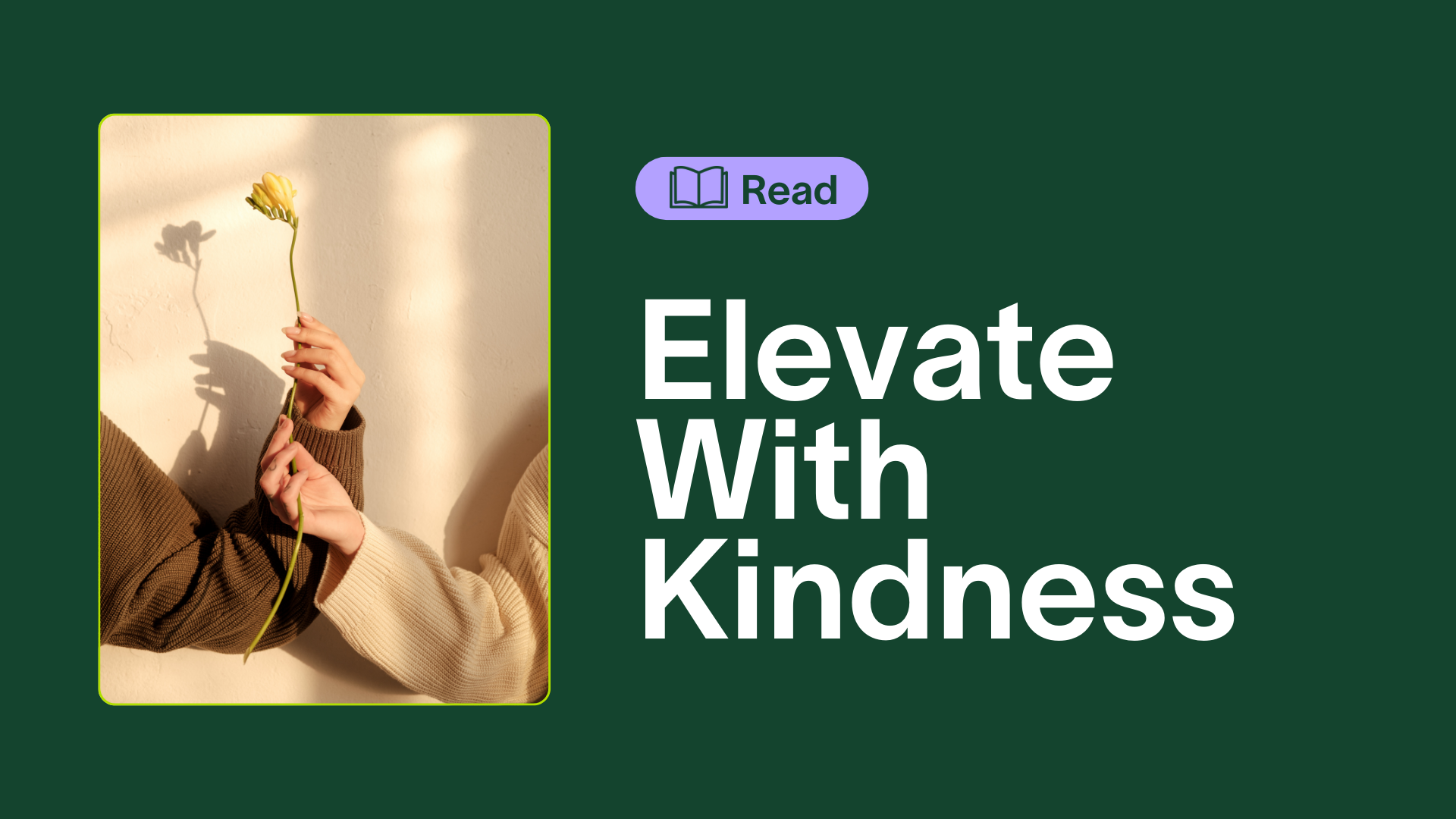Elevate With Kindness
Kindness just might be my favorite of all human capacities.
Kindness represents our potential in the most elevated and sublime form. I’ve been fortunate to get to know a host of highly successful individuals. As I’ve discussed with them the greatest contributing factors to their fortune, the capacity for kindness ranks near the top.
We see this in spectacular donations to academic institutions, medical centers, museums, and many global causes. The Giving Pledge, signed by well over 200 wealthy individuals is estimated to yield over $600B in proceeds. This is not to say that the capacity for kindness lies disproportionately in the hands of people who have exceptional resources. This is simply to highlight the fact that people who seem to have it all believe kindness is one of the best ways to spend their fortune.
In virtually every situation, kindness is an option. Sometimes kindness comes easily and naturally. When we’re in a good state of mind and interacting with people we like, we easily tap into our kinder selves. Yet when kindness is most needed, we often fail to express it. Think of the kid being bullied by all the popular kids. Or that person at work who bombed their big presentation, much to the mockery and gasps of others. Or that entrepreneur who shut down their startup after being unable to make it work for five years. Many of us don’t want to associate with people who are in a rut, or ineffectual, or who are down on their luck. This isn’t mean spirited or a sign that we’re bad people—it’s a natural reaction. Although we may not explicitly acknowledge it, we fear at some level that their negative energy will spread to us.
Yet kindness is a much better approach to any human interaction than the alternatives. If you have a choice between being right or being kind, choose being kind. If you have a choice between looking cool or being kind, choose being kind. If you have a choice between courting success or being kind—you get the idea. Be kind.
Kindness can come in small and large gestures. It can be simple or elaborate. As with most things, I’m a fan of starting small and working your way up larger actions, gestures, or behaviors. Say “thank you” when you’re grateful, “well done” when someone triumphed, or “I like your shoes” when someone sports stylish kicks. These small gestures have an incredible impact on others. You also get the benefit of Newton’s Third Law of Kindness (or was it motion, I forget): When you elevate someone by bestowing kindness, an equal amount of elevation is bestowed upon you. It’s true. Try it.
On an average day, most people receive few—if any—random acts of kindness. Being the one person who makes a difference in someone’s day, however small, will make an outsized difference to them and you.
Conversely, when we not only withhold kindness, but choose to be derisive and mean-spirited, we can have a far greater negative effect than we may realize. Although many of us try to minimize our concern with what other people think and say—or we try not to care at all—this is easier said than done. We’re social creatures. We often understand ourselves relative to our peers and environment, and care about how we’re perceived. People spend inordinate amounts of time and money on their appearances, in ways far beyond what we’re conscious of. We care. We’re all a bit vulnerable to the judgments and opinions of others. When you show kindness, it’s an opportunity to honor the humanity in others—and in ourselves. More often than not, people will reciprocate kindness back to us. The best way to receive kindness, after all, is to give kindness.
